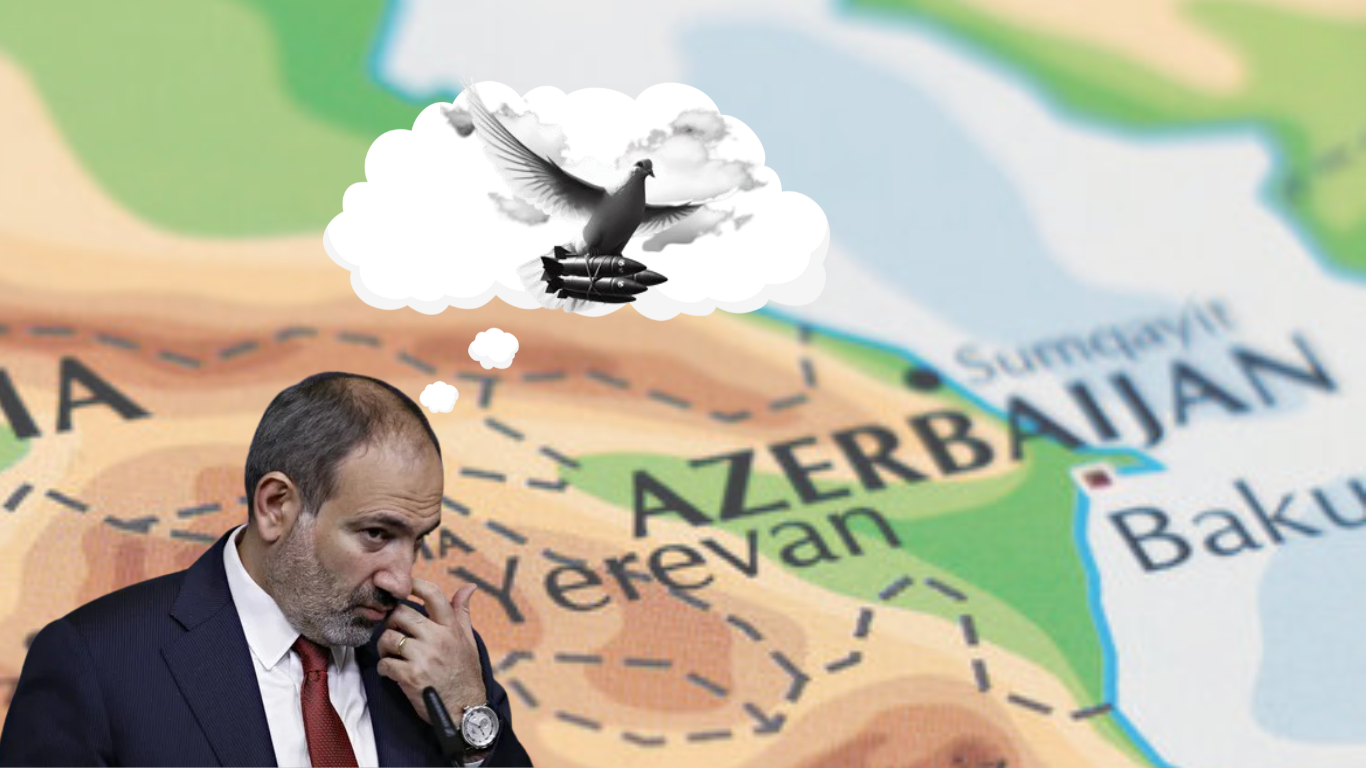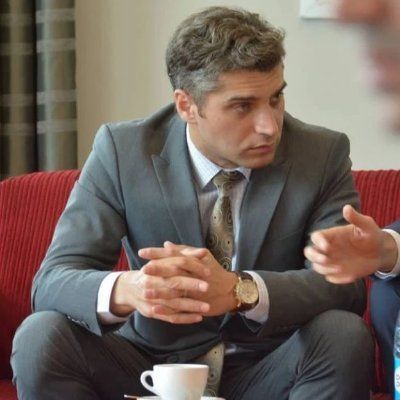Pashinyan’s dove of peace mirrors Yerevan in bellicose mood

Armenian Prime Minister Nikol Pashinyan's recent inconsistent decisions on peace in the region overshadow his statements that he could restore relations with official Baku in a short time. Although Nikol Pashinyan has stated dozens of times since 2024 that "we are ready to sign a peace document," he has followed each statement with an illogical claim, causing the process to be stalled.
Nikol Pashinyan's character is more reminiscent of a stage person. Many experts have come to this conclusion when commenting on his opinions. Even today, within the Pashinyan administration, his decisions are not taken seriously. For example, when news broke two weeks ago that Pashinyan had dismissed six of his ministers, some commentators attributed this to his ministers giving less importance to Pashinyan’s decisions that frequently lose their power.
Tit for tat in hard talks towards looming peace
The reason for the delay in peace talks between Azerbaijan and Armenia is that Armenia still has territorial claims against Azerbaijan in its constitution and declaration of independence. Although the initial reaction when official Baku informed the Armenian leadership of this was positive, later Baku's demand was reacted with a similar claim from the other side. Although Nikol Pashinyan officially admitted in his statement in the Armenian parliament that his country's constitution contains a clause regarding claims against the territories of a neighbouring state, after a while the Armenian prime minister came back with a claim that could confuse the public. His claim was more like a tit-for-tat in which he was assertive about Azerbaijan's “territorial claim” against Armenia, citing the Azerbaijani constitution as an unfounded reason. Nevertheless, all the facts confirm that Pashinyan's claim is not stated in any clause of the Azerbaijani constitution.
It is known that Armenia returned 4 enclaves belonging to Azerbaijan in April 2024. At the same time, Armenia knows that 4 additional enclaves should be returned to Azerbaijan and has officially confirmed this within the framework of the peace agreement document that is still pending. In addition, the peace document also includes a clause on the opening of communication lines between Azerbaijan and Armenia, that is, the Zangazur Corridor. However, Baku, wanting to continue the process quickly, postponed the discussion of the Zangazur Corridor issue until after the peace agreement.
And how did Yerevan act in response to this?
Both the demand from Baku to change the constitution and the appeal to the International Court of Justice regarding Yerevan's known crimes in the formerly occupied Garabagh are obviously burdens for Armenia. To free himself from this burden, the Pashinyan administration should have responded with some pretext. Nikol Pashinyan, following in Baku's footsteps, is withdrawing his baseless constitutional claim against Azerbaijan in an attempt to supposedly contribute to peace talks. He even said that he had withdrawn his unfathomable appeal to the international court against Azerbaijan for unknown reasons; even knowing that it was Armenia that committed murders in Garabagh and caused material and moral damage to the country during the thirty-year occupation.
Why Pashinyan’s dove of peace is much like a bellicose jingoist?
Pashinyan’s reflection on peace in the South Caucasus does not concur with his presentation about Armenia as a dove of peace in the region. He acts more as a belligerent government leader than a peacemaker, given his growing appetite for arming Armenia.
The fact that Armenia's military spending has skyrocketed in recent days and accounts for 6 per cent of the country's GDP does not bode well. Pashinyan, thanks to his loan debts and a large part of the country's revenues, brings howitzers, lethal weapons and heavy artilleries to the country every month. Despite the delimitation of the borders between Armenia and Azerbaijan, Yerevan still agrees to the activities of the European Union Mission (EUMA) near the border.
Armenia's ambiguous position towards Azerbaijan is reflected in many of its recent steps. For example, Armenian Defence Minister Suren Papikyan’s calling the borderline with Azerbaijan a “front line” during his recent visit to the border area, as well as the information circulating about Armenia's construction of a new military unit in the village of Qarakilse (Sisian), raises serious questions. Armenian PM and his peace dove, which he said was preparing for peace with a month left before the end of the year, is it preparing to rain down bombs or is it peace in the air? Fingers crossed...
Here we are to serve you with news right now. It does not cost much, but worth your attention.
Choose to support open, independent, quality journalism and subscribe on a monthly basis.
By subscribing to our online newspaper, you can have full digital access to all news, analysis, and much more.
You can also follow AzerNEWS on Twitter @AzerNewsAz or Facebook @AzerNewsNewspaper
Thank you!

